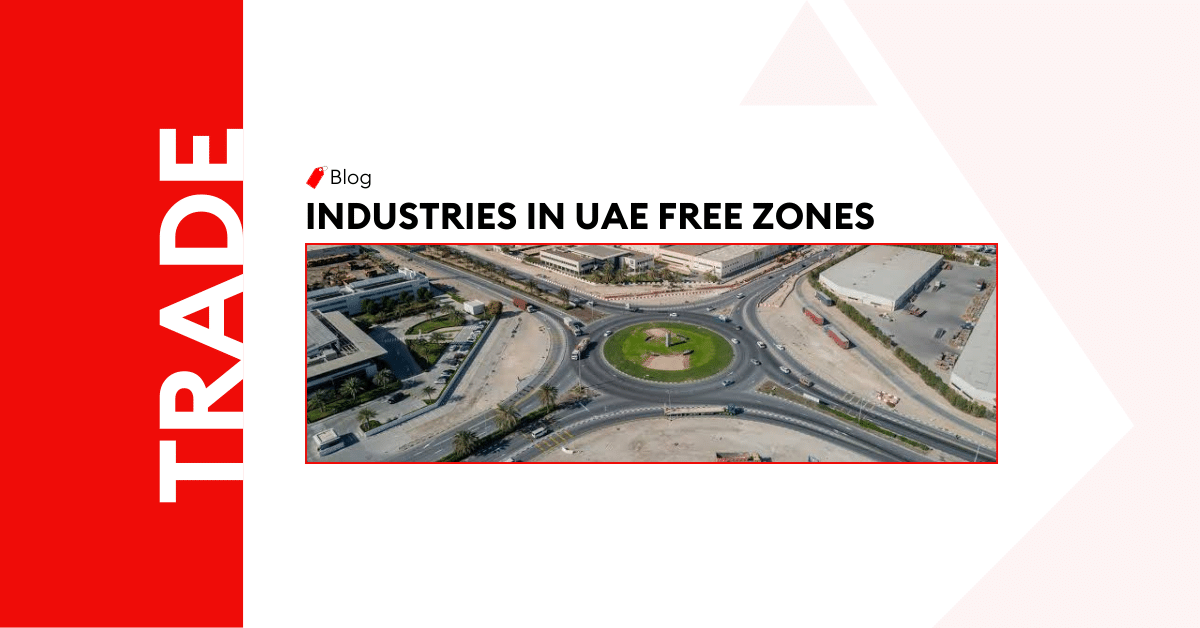
The Top Industries Thriving in UAE Free Zones
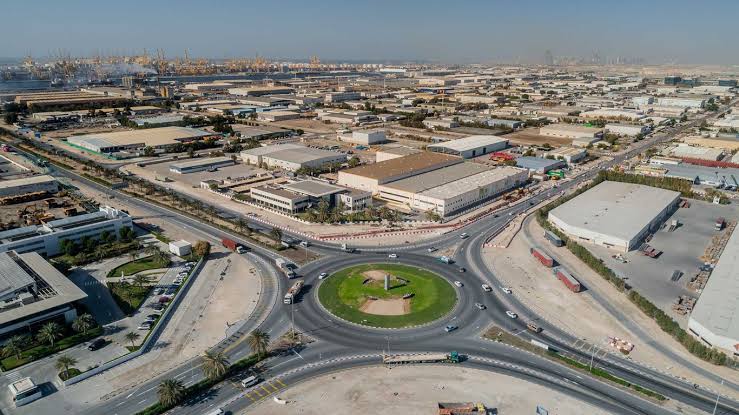
Introduction
The United Arab Emirates (UAE) is home to a dynamic economic concept – the Free Zones. These designated areas are driving economic growth by helping businesses to flourish, innovate, and thrive. Multiple industries are experiencing remarkable growth and success based on the unique advantages these zones offer. From cutting-edge technology and manufacturing to sustainable energy and e-commerce solutions, these industries are shaping the future of the UAE. Let’s delve into the prominent industries in detail.
Technology and Innovation
The Technological Hub of the Middle East
The UAE has emerged as a technological hub in the Middle East, with its Best Free Zones UAE for tech startups playing a crucial role in fostering innovation and tech-driven growth. The country’s strategic location, advanced infrastructure, and supportive policies have made it an ideal destination for technology companies looking to expand in the region.
Attracting Tech Startups and Multinational Corporations
The UAE Free Zones have successfully attracted a wide range of tech startups and multinational corporations. These zones offer a range of incentives such as tax exemptions, full foreign ownership, and streamlined regulatory processes. Tech startups find an enabling environment for growth, access to funding, and networking opportunities. Multinational corporations leverage the UAE’s connectivity to regional markets and its status as a global business hub.
Artificial Intelligence (AI) and Data Analytics: Applications range from enhancing customer experiences to optimizing city services, like traffic management and energy consumption.
Smart Cities and IoT: The UAE is focusing on building smart cities equipped with IoT technologies. Dubai’s “Smart Dubai” initiative aims to integrate technology into various aspects of urban life, from transportation to healthcare.
Fintech and Blockchain: The government’s commitment to blockchain adoption has led to various projects, including the Emirates Blockchain Strategy.
E-commerce and Digital Retail: With an increasingly young and tech-savvy population, the e-commerce sector is booming as Free Zones provide a conducive environment for online retailers to establish their operations.
Cybersecurity: Increasing digital transformation requires robust digital security measures. The UAE tech industry is focusing on developing innovative solutions to counter cyber threats.
Renewable Energy and Sustainability Tech: The UAE is also exploring tech-driven solutions in the renewable energy sector, aligning with its commitment to sustainability and reducing its carbon footprint.

Booming E-Commerce Market in the UAE
The UAE is enjoying significant growth in its e-commerce market, driven by a tech-savvy population, high internet penetration rates, rising smartphone usage, and a preference for convenient online shopping. Additionally, the country’s strategic geographical location connects to Middle Eastern and international markets, positioning it as a regional e-commerce hub.
Benefits of Establishing E-Commerce Businesses in Free Zones
Setting up an E-commerce comes with the following benefits:
Customs Advantages: Businesses in Free Zones benefit from simplified customs procedures and regulations, allowing for smoother import and export of goods.
Tax Benefits: E-commerce companies in Free Zonesare often exempt from corporate and income taxes for a specified period, which can significantly reduce operational costs and boost profitability.
Infrastructure and Logistics: Free Zones offer state-of-the-art infrastructure, including advanced logistics facilities and storage services in Ajman, Ras Al-Khaimah, Sharjah, and more.
Access to Global Markets: The Free Zones provide easy access to international markets due to their well-connected transportation networks, including ports and airports.
Addressing Challenges and Meeting Consumer Demands
While the UAE’s e-commerce market is growing, last-mile delivery remains a challenge due to traffic congestion and the need for efficient and timely delivery services. E-commerce businesses in Free Zones are investing in innovative delivery solutions, such as drone deliveries and partnerships with local logistics providers.
E-commerce businesses must adhere to data privacy, consumer protection, and online transaction regulations. Additionally, meeting the evolving demands of consumers is crucial for sustained growth. E-commerce companies in Free Zones are leveraging technology and data analytics to enhance customer experience.
logistics and Supply Chain Management
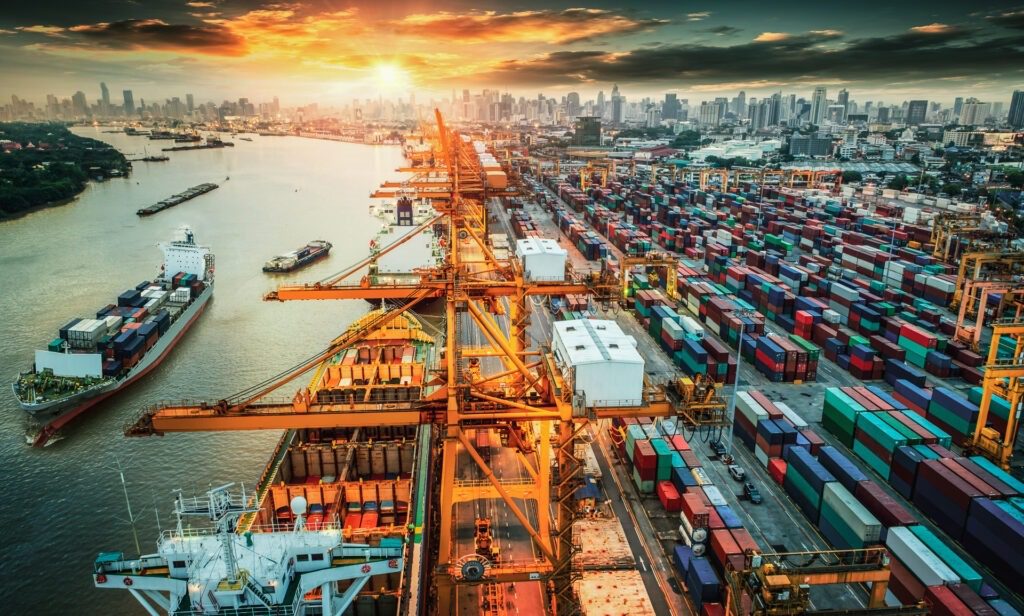
Strategic Location for Global Logistics
The UAE’s strategic location between Asia, Europe, and Africa has positioned it as a central hub for global logistics and supply chain management. The country’s proximity to major trade routes and its well-connected airports and ports makes it an ideal gateway for businesses looking to efficiently transport goods across continents.
Importance of Efficient Supply Chain Solutions
Here’s why efficient supply chain solutions are crucial:
Cost Savings: Through optimized inventory management, reduced transportation expenses, and better resource allocation.
Improved Customer Service: It was made possible via timely distribution services in Dubai and the UAE, with fewer lead times and stockouts.
Enhanced Flexibility: By swiftly adapting to changes in demand or market disruptions.
Competitive Advantage: Offering better prices, faster delivery, and consistent quality.
Global Reach: Enables businesses to navigate complex international trade, manage customs regulations, and access new markets.
Collaborative Relationships: Between suppliers, manufacturers, and distributors.
Data-Driven Insights: To understand demand patterns, consumer behavior, and operational performance, enabling informed decision-making.
Innovations in Logistics Technology
Autonomous Vehicles and Drones: These technologies enable faster and more precise deliveries, especially in confined or challenging environments.
Predictive Analytics: Advanced data analytics tools help businesses predict demand patterns, optimize inventory levels, and identify potential supply chain disruptions.
Smart Warehousing: IoT-enabled sensors in storage and warehouse facilities in UAE help monitor conditions such as temperature, humidity, and shelf life of goods.
Robotics and Automation: Robotic automation in Free Zone warehouses optimizes tasks such as picking, packing, and sorting.
Green Logistics: Optimizing routes to reduce fuel consumption and implementing eco-friendly packaging are minimizing the environmental impact of Free Zone logistics operations.
Innovations in Logistics Technology
The United Arab Emirates (UAE) is presently a dynamic hub for tech startups, a landscape of cutting-edge technology and limitless possibilities. Fueled by a forward-thinking government committed to innovation, the region welcomes and celebrates tech pioneers.
Free zones are the main driver of technological advancement in the United Arab Emirates–geographical entities serving as incubators for dreams and creating the perfect conditions for tech startups to thrive. This article explores the world of tech start-ups, uncovering the hidden treasures that free zones offer – from unparalleled business benefits to dynamic networking opportunities – making the UAE a haven and gateway to technological success.
Get In Touch
Manufacturing and Industrial Growth
UAE Free Zones have played a pivotal role in fostering a diversified manufacturing landscape, attracting a wide range of industries to establish their operations. These zones offer a favorable environment for manufacturing businesses, allowing them to benefit from tax incentives, streamlined regulations, and access to global markets.
Opportunities in Light and Heavy Industries
light industries typically involve the production of consumer goods, electronics, textiles, and smaller-scale products, while heavy industries focus on larger-scale manufacturing such as machinery, automotive, and heavy chemicals. Both sectors present unique opportunities for economic growth and development.
Light Industries
- Capitalizing on trends in fashion, technology, and lifestyle.
- Developing new electronic gadgets, wearable smart technology, and efficient energy solutions.
- Manufacturing sustainable and ethically produced textiles.
- Producing health-conscious packaged goods, beverages, and processed foods.
Heavy Industries
- Constructing roads, bridges, and buildings to meet the demands of urbanization and development projects.
- Building electric vehicles and autonomous driving technology.
- Embracing cleaner technologies to align with sustainability goals.
- Innovative shipbuilding, offshore technology, and marine engineering for global trade expansion.
Promoting Local Production and Export
Incentives in UAE Free Zones that attract local production and growth include:
- Direct access to global markets through well-connected transportation networks.
- State-of-the-art infrastructure, including purpose-built industrial zones, logistics facilities, for example,, storage and warehousing in Ajman, and transportation networks.
- Simplified customs procedures and streamlined export processes, reducing delays and ensuring smooth cross-border trade.
- The presence of diverse manufacturing industries within Free Zones ensures collaboration, knowledge-sharing, and supply chain optimization among businesses.
Renewable Energy and Sustainability
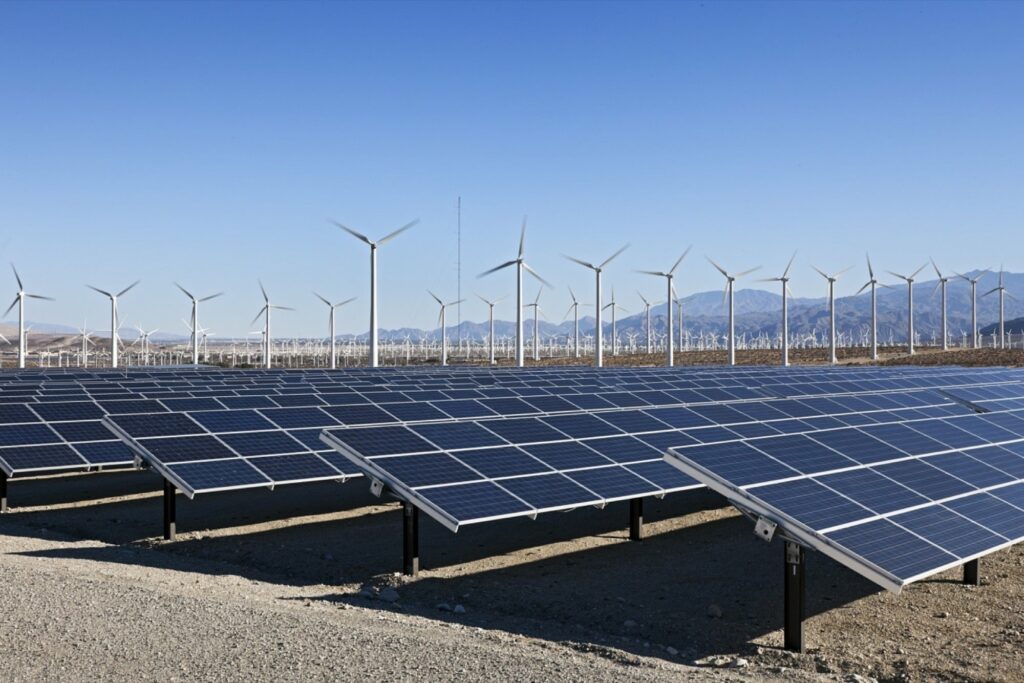
Advancements in Renewable Energy Technologies
Renewable energy is gaining prominence in the UAE with help from its Free Zones. The region is particularly focusing on solar energy, implementing large-scale solar projects and technological innovations. Other advancements include energy storage solutions and innovations in wind and hydroelectric power.
UAE’s Commitment to Sustainable Development
The UAE has demonstrated a strong commitment to sustainable development by setting ambitious goals to reduce carbon emissions and increase the share of renewable energy in its energy mix. The launch of initiatives like the UAE Energy Strategy 2050 and the Dubai Clean Energy Strategy 2050 reflects the nation’s dedication to transitioning to a more sustainable and environmentally friendly energy landscape.
Role of Free Zones in Supporting Green Energy Initiatives
- Supporting the manufacturing and production of renewable energy equipment.
- Providing a controlled environment for testing new renewable energy technologies and projects before scaling up for broader implementation.
- Collaborating with educational institutions to offer training and skill development programs for individuals interested in pursuing careers in the renewable energy sector.
Tourism and Hospitality
Tourism as a Major Economic Driver
Tourism is currently a major economic driver for the UAE, contributing significantly to the country’s GDP and employment opportunities. The UAE’s Free Zones are fostering the growth of the tourism and hospitality industries by creating an environment conducive to attracting tourists and facilitating the development of world-class tourism infrastructure.
Growing Hospitality and Leisure Sector
- The following elements of Free Zones are driving the growth of hospitality and leisure services in the UAE:
- Establishment of luxury hotels and resorts, catering to a diverse range of tourists, from business travelers to leisure seekers.
- Hosting of entertainment complexes, theme parks, and recreational facilities for families and solo travelers.
- State-of-the-art conference centers and venues for hosting international events, increasing overall Meetings, Incentives, Conferences, and Exhibitions (MICE) tourism.
- Availability of world-class healthcare facilities within Free Zones that attract visitors seeking specialized medical treatments.
Integrating Tourism with Cultural and Entertainment Experiences
The United Arab Emirates is blending tourism, culture, and entertainment via Free Zones through:
- Museums, art galleries, and historical sites showcase the region’s rich heritage.
- Entertainment districts featuring theaters, concert venues, and live performances.
- Luxury shopping malls and retail outlets showcasing luxury brands.
- Fine dining options, showcasing a wide array of international cuisines and contributing to culinary tourism.
- Immersive travel experiences like adventure sports, cultural events, and guided tours.
Opportunities for Cross-Industry Collaboration
The synergy between Industries within Free Zones
UAE Free Zones provide a unique environment that fosters cross-industry collaboration, allowing diverse sectors to come together and benefit from synergies that drive innovation and growth. The proximity of various industries within these zones creates opportunities for collaboration, leading to new business models and enhanced products and services.
Collaborative Efforts for Innovation and Growth
- Cross-industry collaboration encourages the sharing of expertise and resources, leading to more efficient research and development efforts.
- UAE Free Zones can act as innovation hubs where businesses from different sectors collaborate to solve common challenges.
- Cross-industry collaboration can enable businesses from different stages of the value chain to work together to streamline processes.
- Collaborative efforts between industries can open new market opportunities.
- Cross-industry collaboration can lead to resource-sharing agreements, such as sharing manufacturing facilities or utilizing a common research laboratory, which optimize resource utilization and reduce operational costs.
Challenges and Opportunities
Navigating Regulatory and Compliance Issues
UAE Free Zones provide a favorable business environment, but navigating regulatory and compliance issues can be challenging. Businesses need to understand and adhere to local regulations, customs procedures, and licensing requirements. Foreign companies may require legal expertise and resources.
Still, navigating regulatory and compliance issues offers unique opportunities. Consulting with legal experts and government agencies can help ensure compliance while maximizing the benefits of operating within Free Zones. Engaging with regulatory bodies can further lead to smoother business operations.
Leveraging Government Initiatives and Incentives
Government initiatives and incentives in UAE Free Zones are attractive, yet accessing and utilizing them effectively can be complex. Businesses must monitor evolving policies and regulations. Staying updated on policy changes and engaging with relevant authorities helps businesses to benefit from tax breaks, import/export privileges, and other incentives.
Embracing Market Trends for Sustained Growth
Staying relevant in rapidly evolving markets can be challenging. Businesses within Free Zones will still need to adapt to changing consumer preferences, emerging technologies, and industry disruptions to avoid stagnation. Yet, embracing market trends presents opportunities for sustained growth and innovation. Businesses that proactively adapt to market shifts can tap into new customer segments and capitalize on emerging technologies.
How Al Sharqi Can Facilitate Industry Growth in Free Zones
Introduction to Al Sharqi’s Industry-Specific Services
Al Sharqi is one of the significant shipping logistics companies. With a reputation for excellence in logistics and supply chain management, our industry-specific services cater to a wide range of sectors, including manufacturing, e-commerce, technology, healthcare, and more. Our deep understanding of the unique requirements and dynamics of each industry allows us to provide tailored logistics solutions that optimize efficiency, reduce costs, and enhance overall operations.
Expertise in Navigating Industry-Specific Challenges
Al Sharqi’s expertise lies in the ability to navigate the industry-specific challenges that businesses face within Free Zones. These challenges include customs and regulatory compliance, complex supply chain networks, last-mile delivery demands, and specialized storage requirements.
Enabling Seamless Operations and Supply Chain Management
Our real-time monitoring systems and data analytics provide businesses with insights to make informed decisions and optimize their operations. Strategically located warehouses within Free Zones offer businesses cost-effective storage solutions.
Our team of experts understands regulatory and compliance requirements within Free Zones, ensuring that businesses navigate customs processes and legalities seamlessly to reduce delays and minimize risks. Additionally, we offer end-to-end logistics solutions, including transportation, warehousing, distribution, and value-added services such as kitting, labeling, and packaging.
Conclusion
The UAE Free Zones is nurturing various industries that are driving the region’s economic diversification, creating jobs, and elevating its global competitiveness. These sectors include e-commerce, technology, logistics, manufacturing and tourism.
Currently, there’s an immense potential for growth and collaboration across these sectors within free zones. As these Free Zones create a vibrant ecosystem for business growth, there’s surely a brighter, more diversified, and prosperous future for the UAE.
FAQs
Our experience in the field and our global network
Jebel Ali Free Zone (JAFZA) is widely considered one of the best industrial zones in the UAE. As one of the oldest and flagship free zones of Dubai Ports (DP) World, JAFZA has ISO certification, progressive work procedures, and allows diversification of business modules. Also, it connects to the Jebel Ali seaport and provides efficient logistics and warehousing facilities.
With a rich reserve of oil, the region traditionally relied on the energy sector. However, the UAE currently diversifies its economy, with more focus on tourism and hospitality, real estate, retail financial services, manufacturing, construction, technology, media, and renewable energy.
Free zone companies in the UAE are businesses established within designated economic zones offering distinct advantages. These entities enjoy streamlined processes for company setup, operations, and international trade, making them attractive for foreign investment.
The information technology sector is gaining prominence in the UAE, experiencing rapid growth and innovation. The country’s commitment to becoming a tech hub is driving advancements in artificial intelligence, blockchain, fintech, and smart city solutions.
Related Articles
The Impact of Incoterms ® 2020 on Global Trade Explained
Understanding the incoterms is essential if you are shipping goods. These are the rules of commercia
Understanding the Different Types of Free Zones in the UAE
Introduction In the dynamic landscape of the United Arab Emirates (UAE), the concept of free zones h
UAE Free Zone vs. Mainland: Which One is Right for Your Business?
Introduction In the vibrant landscape of the United Arab Emirates, aspiring entrepreneurs often find




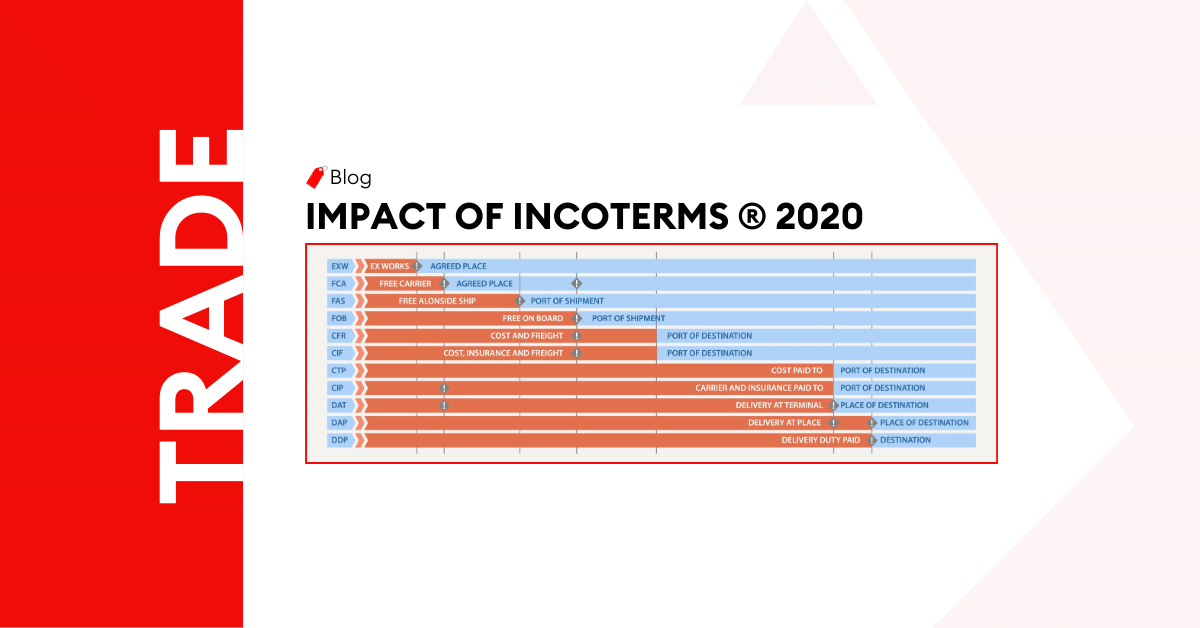
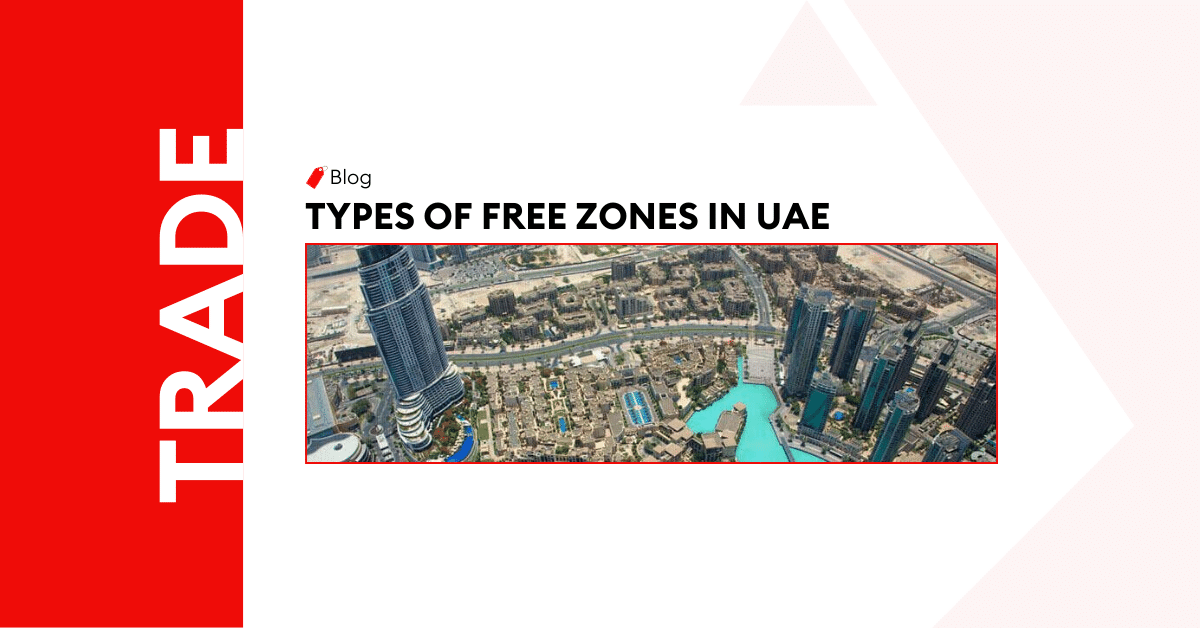
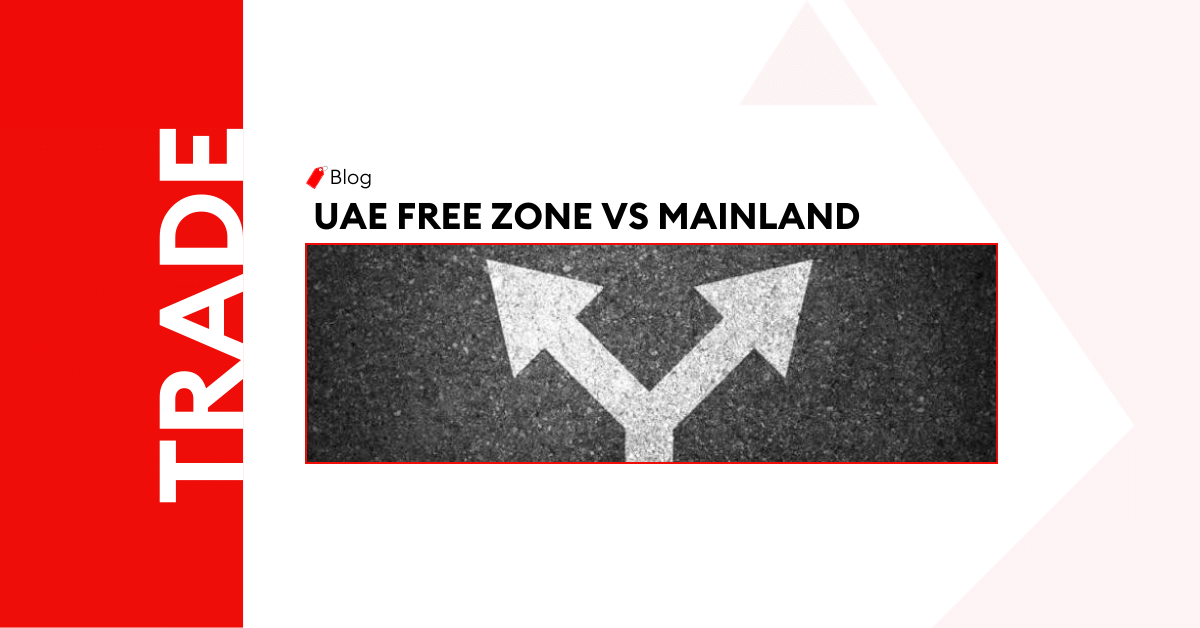
Post a comment
You must be logged in to post a comment.